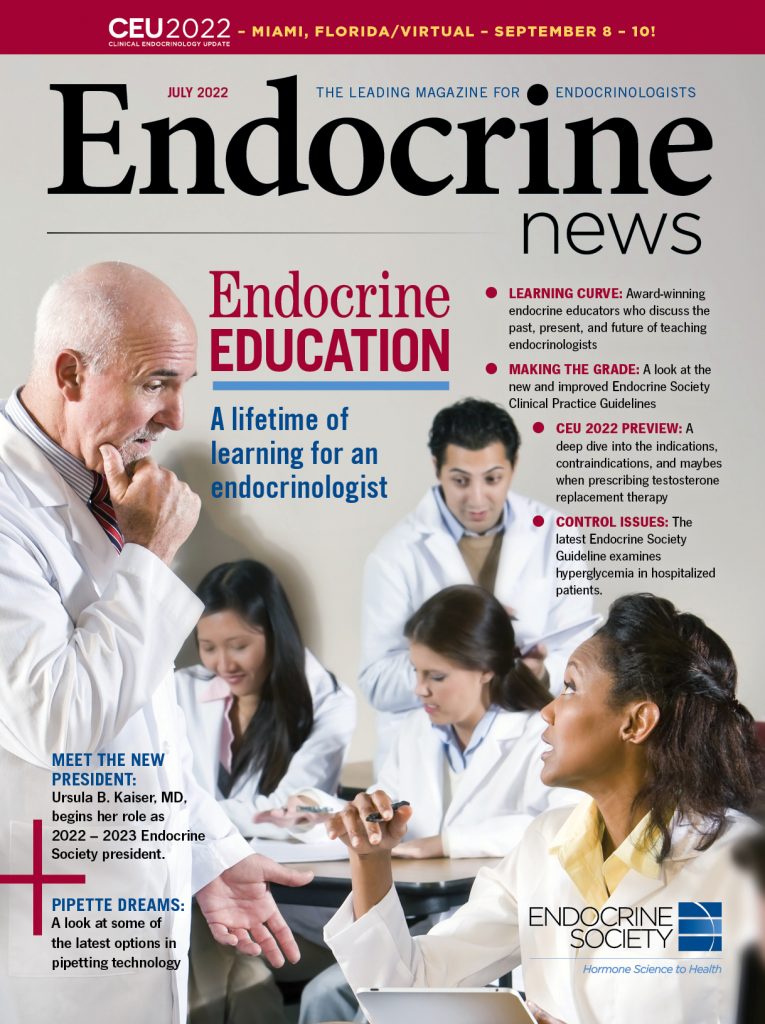
Endocrine News reached out to a few of the Endocrine Society’s Outstanding Educator Laureates to share insights into the state of endocrine education. Ann Danoff, MD; Kenneth Burman, MD; Laurence Katznelson, MD; and Carolyn Becker, MD, discuss the past, present, and future of educating endocrinologists, the best advice they’ve ever received, and how they motivate their own students.
They help chart the course for the future of endocrinology. As educators of today’s young physicians and researchers who have chosen the endocrine specialty, these teachers pass along the wisdom their vast experience has afforded as they help shape both the minds and gumption of tomorrow’s leaders in the field.
Endocrine News asked three past recipients of the Endocrine Society’s Outstanding Educator Laureate Award to share their opinions about the state of endocrine education. With a combined 100 years spent as educators, these three honorees have witnessed everything from how technology and computers have shifted patient care to how the specialty still struggles with the diversity of endocrine providers.
Joining the roundtable are: Ann Danoff, MD, former chief of medicine at the Philadelphia VA and vice chair of medicine at Perelman School of Medicine, University of Pennsylvania (2021 Laureate); Kenneth Burman, MD, Endocrine Fellowship program director; Joint Medstar Georgetown/Medstar Washington Hospital Center Program, professor, Department of Medicine, Georgetown University (2019 Laureate); Laurence Katznelson, MD, professor of medicine and neurosurgery, associate dean of Graduate Medical Education, Stanford University School of Medicine (2017 Laureate); and Carolyn Becker, MD, Marshall A. Wolf Distinguished Clinician Educator, Division of Endocrinology, Diabetes and Hypertension, Brigham and Women’s Hospital associate professor of medicine, Harvard Medical School (2018 Laureate).
Endocrine News: What are the most important issues facing endocrine education right now?
Ann Danoff: The most important issues currently facing endocrine education overlap with those facing medicine and society more generally. Misinformation, disinformation, lies, and absence of common human decency are rampant in our culture. It is my impression that we are witnessing deterioration of the moral fabric of society. Physicians have become pawns in the game of those whose primary motivation is money and/or power, and who have little concern for the impact of their behavior on living and non-living things. Unless we can reverse this trend, and embrace and support diversity, diversity of opinions, and respect for other creatures and the planet, medical (and other) education is destined for extinction, and that would be the least of our worries.
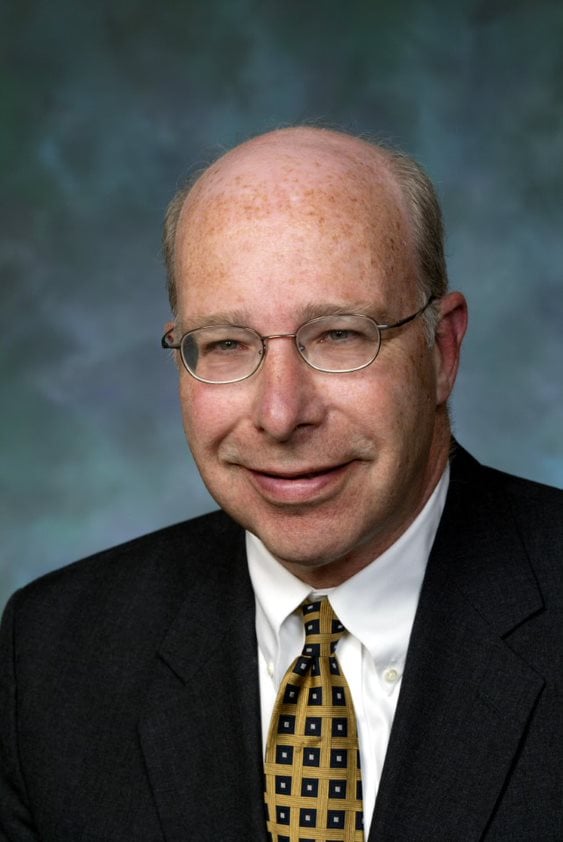
“The best aspects of endocrinology include the various types of disease we encounter, the ability to measure hormones quantitatively to make a diagnosis, and the ability to rationally treat patients. Also, the long-term relationships we develop with patients are very satisfying.”
Kenneth Burman, MD, Endocrine Fellowship program director; Joint Medstar Georgetown/Medstar Washington Hospital Center Program, professor, Department of Medicine, Georgetown University, Washington D.C.
Kenneth Burman: There is not sufficient time to perform well in the areas of clinical, research, teaching, and administration.
Carolyn Becker: A key issue facing endocrine education right now is the need for greater racial and gender diversity, equity, and inclusion at all levels. For much of its history, endocrinology was practiced and led by White men. We now have much greater representation of women in endocrine practice and research but not at the highest levels of our academic institutions. Many racial minorities are severely underrepresented within endocrine practice and research, particularly Black and Hispanic people. Endocrinologists with Asian backgrounds are not well represented in leadership roles. All of this is relevant to endocrine education as we need to attract the most talented and diverse people to our field and to do so requires visible and meaningful representation of all underrepresented groups as clinicians, researchers, and academic leaders.
Katznelson: Assuring more global education, particularly in areas with more limited access to experienced educators. Access to research venues to promote critical thinking and knowledge advancement. And assimilation of advancements in imaging and medical breakthroughs into trainee and clinician education.
EN: How has endocrine education changed since your days as a post-doc or undergrad?
Danoff: The most obvious change is the introduction of the internet and the associated access to vast amounts of information with the click of a button, and the option of remote and hybrid learning/teaching (and electronic charting). In addition, the learning environment seems more structured, with more policies that direct what constitutes an appropriate learning environment. The curriculum is more standardized, and “accountability” of learners and teachers by local and national organizations seems more prominent. There are rules regarding duty hours that did not exist when I trained, much more talk about work-life balance, and much more emphasis on topics related to career advancement. Because of increasing time constraints on clinician-educators, there is less time for “bedside learning” and less time for learners to have apprenticeship type relationships with teachers/mentors.
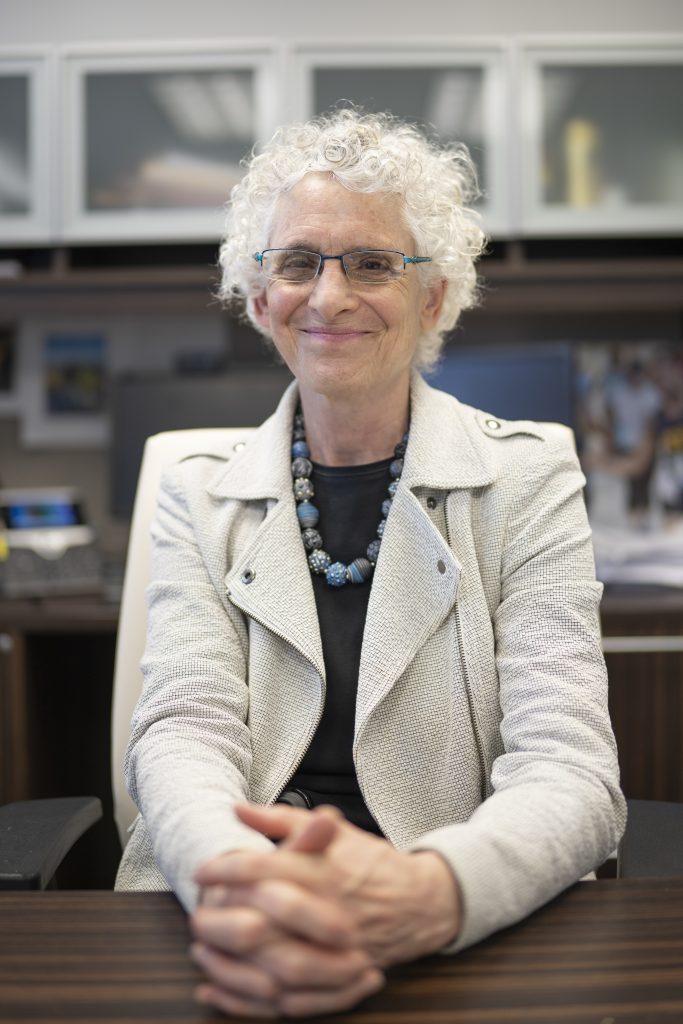
“There are rules regarding duty hours that did not exist when I trained, much more talk about work-life balance, and much more emphasis on topics related to career advancement. Because of increasing time constraints on clinician-educators, there is less time for ‘bedside learning’ and less time for learners to have apprenticeship type relationships with teachers/mentors.”
Ann Danoff, MD, former chief of medicine at the Philadelphia VA and vice chair of medicine at Perelman School of Medicine, University of Pennsylvania, Philadelphia, Pa.
One thing that has not changed enough is that women, people of color, and sexual minorities are still grossly underrepresented in teaching/mentoring/leadership positions and so are not available as role models.
Burman: There is less time spent examining and discussing patients with the attending physician and fellow.
Becker: I was trained in the era when there were almost no computers, charts were made of paper, and checking a fingerstick glucose took 20 minutes and a device the size of a shoebox. On the other hand, there was a proximity to the patient that was very precious and invaluable. We focused on careful histories and physical exams, we looked at our own thyroid needle aspirations, and we reviewed our own radiographs and scans. We spent less time charting, documenting, and billing and more time with our patients. Once computers were introduced into exam rooms, the educational experience changed dramatically. Some of this is for the better, some of it is much worse. But it is certainly different.
Katznelson: There has been an exponential growth of opportunities in telemedicine to advance education. This is one of the positive outcomes of the pandemic and has led to exciting new opportunities in more global education.
EN: What is some of the best advice you were ever given as a student by one of your mentors?
Danoff: One of my teachers was a beautiful dancer named Vera Nemtchinova. When asked how she managed to execute 64 fouetté turns in Swan Lake (most brilliant dancers max out at 32), with her broken English accent, she replied “one more, one more, one more.” That teaching helped me get through more than one rough spot.
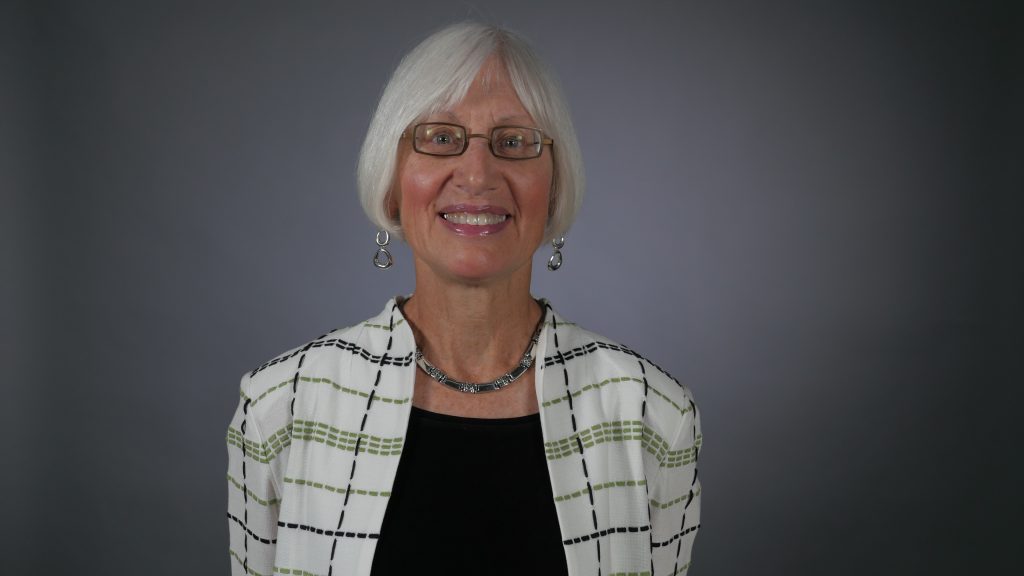
“I was trained in the era when there were almost no computers, charts were made of paper, and checking a fingerstick glucose took 20 minutes and a device the size of a shoebox. On the other hand, there was a proximity to the patient that was very precious and invaluable.”
Carolyn Becker, MD, Marshall A. Wolf Distinguished Clinician Educator, Division of Endocrinology, Diabetes and Hypertension, Brigham and Women’s Hospital; associate professor of medicine, Harvard Medical School, Boston, Ma.
A few bits of non-verbal advice: Other dancers/choreographers (Kenneth King, Jimmy Waring, Merce Cunningham) taught by example the importance of having a strong foundation and being able to improvise in response to which way the wind was blowing. My Tai Chi teachers taught me to keep my feet rooted firmly in the ground and my head suspended from heaven.
Burman: Be industrious. Be a team player. Take excellent, compassionate care of patients.
Never compromise your integrity.
Becker: The patient comes first but never miss a meal.
EN: What would you say to today’s students to motivate them in the field of endocrinology?
Danoff: I cannot express how deeply I have loved my life in endocrinology, and how lucky I feel that I found my way into the field. Endocrinology offers a window into the most magnificent choreography imaginable. If you are drawn in, just do it.
Burman: The best aspects of endocrinology include the various types of disease we encounter, the ability to measure hormones quantitatively to make a diagnosis, and the ability to rationally treat patients. Also, the long-term relationships we develop with patients are very satisfying.
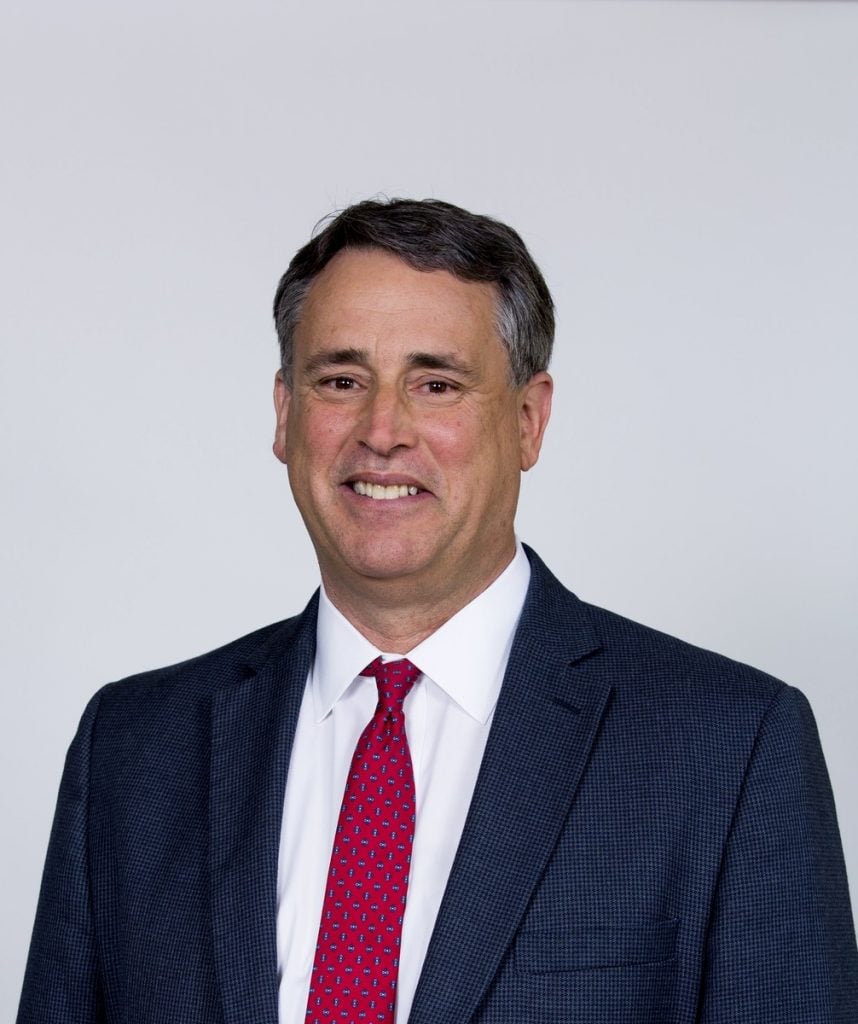
“For students drawn by the intersection of biochemistry, disease, and research, endocrinology offers the ability to combine all of these scholarly opportunities into an exciting career.”
Laurence Katznelson, MD, professor of medicine and neurosurgery, associate dean of graduate medical education, Stanford University School of Medicine, Stanford, Calif.
Becker: Get involved in the Endocrine Society to be inspired, educated, connected, and make friends to last for a lifetime.
Katznelson: For students drawn by the intersection of biochemistry, disease, and research, endocrinology offers the ability to combine all of these scholarly opportunities into an exciting career.
- Fauntleroy Shaw is a freelance writer based in Carmel, Ind. She is a regular contributor to Endocrine News.

